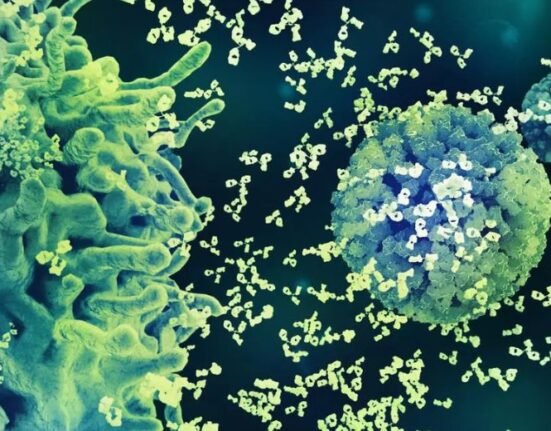HQ Team
September 25, 2024: Merck & Co., announced its trial drug along with a combination of the company’s Keytruda therapy failed to meet the main goal of overall survival in patients previously treated for a type of metastatic colorectal cancer.
The combination drug, favezelimab, “did not meet its primary endpoint of overall survival for the treatment of patients with previously treated PD-L1 positive microsatellite stable metastatic colorectal cancer,” according to a Merck statement.
The end-stage trial evaluated the investigational fixed-dose combination of favezelimab, and pembrolizumab or Keytruda with standard of care, regorafenib or TAS-102 —trifluridine and tipiracil hydrochloride — on 441 patients.
“At the final pre-specified analysis, the favezelimab and pembrolizumab fixed-dose combination did not demonstrate an improvement in OS compared to standard of care,” according to the statement.
The primary endpoint was overall survival or the length of time that patients with a disease such as cancer, are alive after their diagnosis or the start of treatment.
Secondary endpoints included progression-free survival, objective response rate, duration of response, safety and quality of life. “A full evaluation of the data is ongoing and Merck will work with investigators to share the results with the scientific community.”
PD-L1 protein
PD-L1 (Programmed Death-Ligand 1) is a protein that can be expressed on tumour cells and is involved in immune response regulation. In colorectal cancer, particularly in microsatellite stable tumours, PD-L1 expression is often associated with a poorer prognosis.
Studies have shown that high levels of PD-L1 expression correlate with advanced disease features, including lymph nodes and distant metastases, indicating a more aggressive cancer type.
The presence of PD-L1 is significant for determining eligibility for immunotherapy treatments. Tumors with sufficient PD-L1 expression may respond positively to therapies targeting the PD-1/PD-L1 pathway, while those with low or absent PD-L1 expression are less likely to benefit from such treatments.
This distinction is crucial as it informs treatment decisions and prognostic assessments for patients with colorectal cancer.
`Limited response to immunotherapies’
“Metastatic colorectal cancer continues to be a challenging disease to treat, especially for the majority of patients who have microsatellite stable disease, which has had limited response to immunotherapies,” said Dr M. Catherine Pietanza, vice president, of global clinical development, Merck Research Laboratories.
The favezelimab and pembrolizumab fixed-dose combination is also being evaluated in certain hematologic malignancies and multiple solid tumour types, according to the statement.
Ongoing studies include a phase 3 study evaluating the fixed-dose combination in patients with relapsed or refractory classical Hodgkin lymphoma whose disease has progressed following prior anti-PD-1 therapy.
Colorectal cancer often begins with growths on the inner lining of the colon or rectum called polyps, which can change into cancer over time.
900,000 deaths globally
Colorectal cancer is the third most commonly diagnosed cancer and the second most common cause of cancer-related death worldwide. It is estimated there were nearly 1.9 million patients diagnosed with colorectal cancer and more than 900,000 patient deaths from the disease globally in 2022.
In the US, it is estimated that there will be approximately 107,000 patients diagnosed with colon cancer and approximately 46,000 patients diagnosed with rectal cancer, resulting in more than 53,000 deaths from colorectal cancer in 2024.
The five-year relative survival rates in the US for metastatic colon cancer and rectal cancer (stage IV) are estimated to be 13% and 18%, respectively.








